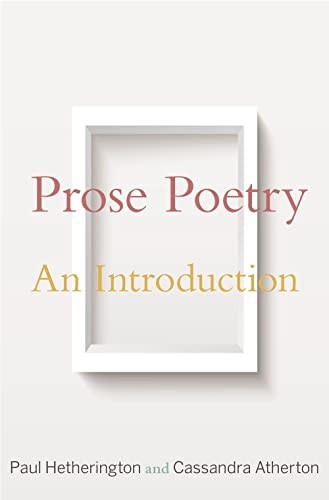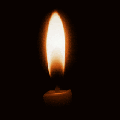4thace reviewed Prose Poetry by Paul Hetherington
An interesting survey of what's out there #poetry #book #review
4 stars
This book is a survey of the writing style known as prose poetry from its early inception in the 19th century up to the latter part of the 20th. It takes pains to draw out the important techniques and methods used by prose poets and their popularity and it uses short quotations from a number of prose poems as it goes. Of the poets mentioned there is good representation of underrepresented communities and women.
The first problem is to define what poetry is, for many still feel that the name is a contradiction in terms. And in recent times it has become even more difficult to distinguish it from ultrashort prose items such as flash fiction. There are questions of whether prose poetry is distinct from poetic prose and whether the piece is necessarily brief. The simplest definition states that prose poetry is just poetry without imposed line breaks, but …
This book is a survey of the writing style known as prose poetry from its early inception in the 19th century up to the latter part of the 20th. It takes pains to draw out the important techniques and methods used by prose poets and their popularity and it uses short quotations from a number of prose poems as it goes. Of the poets mentioned there is good representation of underrepresented communities and women.
The first problem is to define what poetry is, for many still feel that the name is a contradiction in terms. And in recent times it has become even more difficult to distinguish it from ultrashort prose items such as flash fiction. There are questions of whether prose poetry is distinct from poetic prose and whether the piece is necessarily brief. The simplest definition states that prose poetry is just poetry without imposed line breaks, but it can sometimes run afoul of those cases which do mix in lineated poetry along with blocks without line breaks.
There was also mention of the fragmentary nature of many prose poems, though also point out that there are other kinds of prose poetry which are more cohesive, yet still distinct from narrative prose. And they talk about the idea that the shape poem on the page in a way can evoke other art forms such as painting or architecture. No one thinks about how narrative prose as being confined by the margins of the page and yet prose poetry with its fanciful and artistic content seems to play with this idea of being constrained by a container or box. They take up the idea that prose poetry achieves some of its density because of metonymy, alluding to larger topics indirectly in a way that makes the reader work at unpacking the implications.
In the last 30 years post poetry in English has gained prominence because of some celebrated works by writers such as Charles Simic and John Ashbury which have received much discussion and awards. And yet this does not mean that all poets who are budding poets try to imitate them. Rather, it seems to be a field where there is still lots of wide open experimentation: graphical effects, very long or very short sentences, and other ways to break the form. This was an ebook version of this work which seem to keep up pretty well with the short prose poem extracts, maybe one or two short paragraphs each, but which did fail when it came to the sprawling semi-surreal work of Arthur Rimbaud, a combination of concrete and prose poetry with lines sprawling across the two page spread. This seemed to reach for a very different kind of rhythm than the prose-poem adjacent work of someone such as Walt Whitman. For while Whitman's work is broken up into lines, there is undoubtedly a very strong prose element that he introduced into American and English-speaking poetry. Perhaps the long discursive lines were presented this was so as not to break with the accepted forms of poetry then rather than being dictated by breath and by rhythm.
Prose poems have always had the ability to shock and upset readers because they may come to it unaware that the author is not engaging in straightforward narration and substituting something odd and unsettling, with word choices and repetitions characteristic of poetry. Some authors find this to be an aspect to the form which complements the message that they're trying to convey. The authors cite previous works on prose poetry and I am happy to see that there's been so much literary analysis of what remains an obscure branch of poetry.
I've experimented with the form and even have a few pieces published but having read this book now I have more ideas on which ways I could take it into different directiions. I learned quite a bit about some of the more fanciful aspects of prose poetry than what I knew coming in to this work.
I was surprised to find that the text of the ebook comes to an end about 60% of the way through, the rest of it being taken up with the end notes. Maybe the abrupt stop is appropriate for such a subject.

